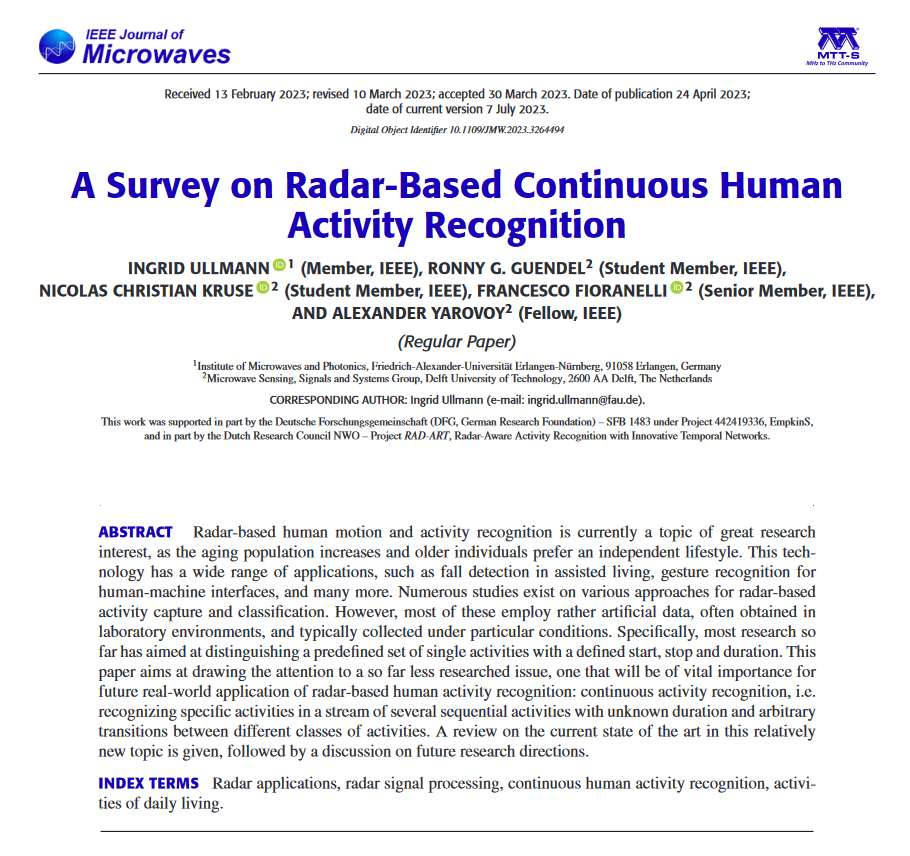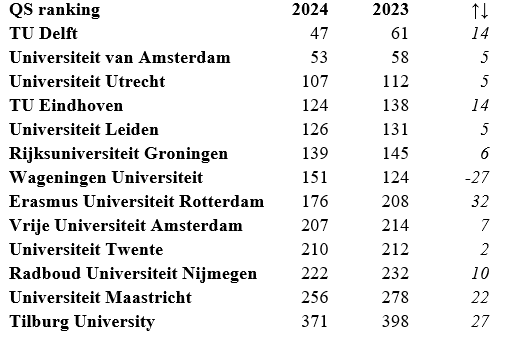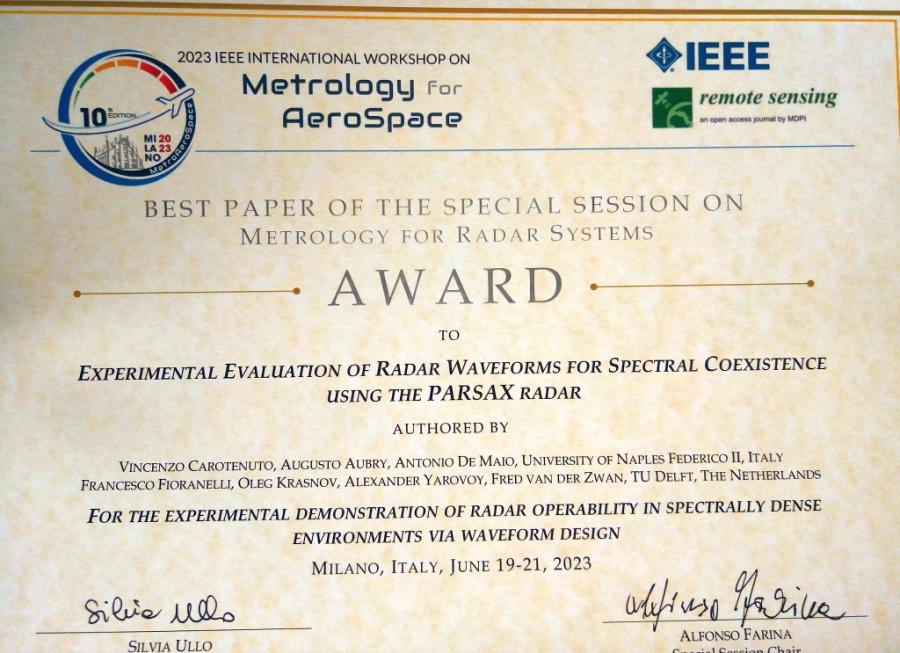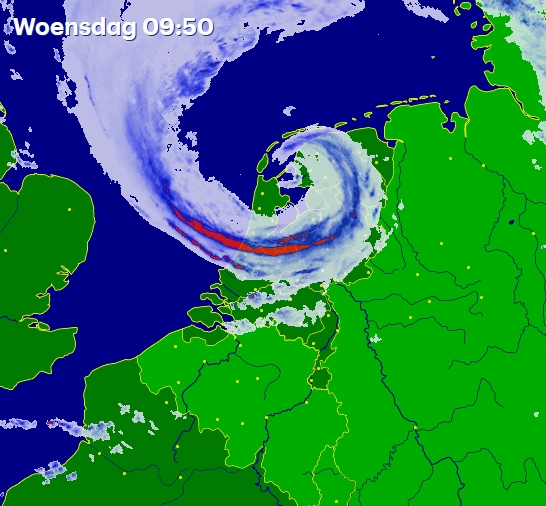
Blog Archives
New paper in IEEE Journal of Microwaves -“A Survey on Radar-Based Continuous Human Activity Recognition”
TU Delft in top 50 QS-ranking
Almost all Dutch universities are gaining ground in the world rankings by British research firm QS. TU Delft rises from place 61 last year to 47 now. One reason: the makers have revamped their methodology. Among other things, the QS World University Rankings now look at whether universities contribute to the 17 goals of the United Nations.
The main criterion in the rankings remains the university‘s reputation among scientists and employers, but the balance shifts in this. Scientists now weigh slightly less, while employers’ opinions are given more emphasis. Other criteria include the internationalization of staff and students, citation scores of scientific articles, the number of students per lecturer, and students’ performance in the labor market.
At the top, little changes. The US MIT is at the top for the 12th time and the British University of Cambridge is number two, as it was last year.

Dutch Universities Association UNL makes a comment on its website: “A ranking paints an incomplete picture of reality. The strength of higher education institutions is, pre-eminently, their mutual diversity. The pitfall of rankings is that they paint a global picture that does (too) little justice to the complexity of what is being measured.”
BTW, according to the QS WUR Ranking by Subject, we are #15 in Electrical and Electronic Engineering!
Our Paper was Awarded at the IEEE MetroAeroSpace 2023 !!!
We are proud to announce that our paper, “Experimental Evaluation of Radar Waveforms for Spectral Coexistence Using the PARSAX Radar”, the result of our research collaboration with the team from the University of Naples “Federico II”, has been recognized as the most outstanding paper of the Special Session on Metrology for Radar Systems presented at IEEE MetroAeroSpace 2023 (the award has been sponsored by MDPI Remote Sensing Journal). The paper was acknowledged for its experimental demonstration of radar operability in spectrally dense environments through innovative waveform design.

The Airport Technology Lab organized the Innovative digital technology event
The Airport Technology Lab is a research, test, and innovation environment at Rotterdam The Hague Airport, aimed at promoting digital innovation to make aviation and airports future-proof. For four years, the 13 public and private partners – including TU Delft, SkyEcho, Robin radar, Bagchain, and WorldStartup – have worked together within the consortium to develop and test solutions that contribute to a more sustainable and efficient aviation industry. On 8 and 9 June, ten digital innovation projects were presented during a special showcase event at Albeda Rotterdam The Hague Airport College. The event marks an important milestone in the effort to make aviation smarter and more efficient. During the opening by Miranda Janse (director of Rotterdam the Hague Innovation Airport) and Wilma van Dijk (director of Rotterdam The Hague Airport), the importance of cooperation in the continued development of smart, efficient digital solutions was once again emphasized. – the full article (in Dutch)

For this event, the ATL also published a booklet “Digital Airports as a Solution” with descriptions of projects and partnerships. Within this program, the MS3 group participates with Robin Radar and SkyEcho partners for developing airside 4D weather mapping using a phased array radar.
TU Delta: Millions for TU Delft-led radar project
The TU Delft-led PHARA consortium will receive millions of euros in funding from NWO. The researchers are developing a new type of radar that can observe the entire sky in a few seconds, to study how particles grow in clouds and rainfall, and observe large movements of weather fronts. The transportable radar should contribute to climate and atmospheric research, more accurate weather forecasts, and further innovations in radar technology.
NWO is putting a total of EUR 22.7 million into seven projects in which scientists from all over the Netherlands are developing high-quality research equipment, data collection, and software. The contribution ranges from 2.3 to 4.7 million euros per project.
With the money, the research funder wants to encourage scientists to work together to keep the Netherlands‘ scientific infrastructure up to date. According to NWO president Marcel Levi, the seven awarded projects enable new research that has great added value for society. As recently as February, NWO together with the Ministry of Education, Culture and Science awarded 140 million euros from the ‘national roadmap’ for exceptionally large research equipment and databases. (HOP, HC)









